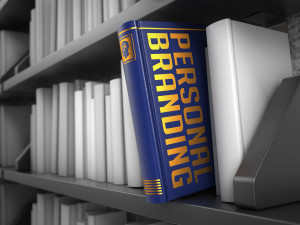![]()
 I have been hearing a lot about the importance of personal branding and in knowing the value that I bring as an individual to any situation. Discovering your personal brand starts with an understanding of your authentic self and of how others perceive you.
I have been hearing a lot about the importance of personal branding and in knowing the value that I bring as an individual to any situation. Discovering your personal brand starts with an understanding of your authentic self and of how others perceive you.
Your brand is made up of the words used to describe you. It is related to your reputation – what people think of you and the work you do. Basically, it is what is being said about you when you are not in the room.
If you are like me, this can be a scary thought. And the more I thought about my personal brand, the more I realized I was unsure of what is being said when I am not there. So I asked a few friends and colleagues for help. Here are the questions that I asked them:
- What’s my superpower? What do I do better than anyone else?
- What do you see as my top values – my operating principles?
- What do you hear people frequently compliment me on or praise me for?
- What is it that my manager, colleagues, friends, and clients come to me for?
- What adjectives do people consistently use to describe me – perhaps when they’re introducing me to others?
- What makes the way I achieve results interesting or unique?
- What do you think are my true passions?
The feedback that I received made me proud. Some of the words I received were integrity, loyal, professional, poised with a sense of humor, humble and hard working. I was told that I have a desire to serve others and I am not afraid to take risks. I believe that my brand is a correct representation of who I am, or at least who I want to be.
Seeking feedback from trusted peers and mentors about how you are perceived is a good way to find out about your current brand. Once you are aware of how others perceive you, it is easier to manage that perception. I am lucky because I like my current brand. But if you do not like your current brand, only you have the power to change it.
For more information about personal branding, check out this short video by William Arruda, Personal Branding Step 1: Know Yourself. Feel free to use the seven questions above if you need help getting started. And don’t forget to share your personal brand story in the comments section below.
Janis Burl is part of the GovLoop Featured Blogger program, where we feature blog posts by government voices from all across the country (and world!). To see more Featured Blogger posts, click here.





The best version of this I’ve heard is “Your epitaph is not a lottery” When you pass on is when you find out what you have done, what you have won is the wrong approach.
We write our epitaph every day in the work we do, the volunteering we share and the words we spread. “We carve the words of our own tombstone. “ is too morbid for me. Humor is lighter approach.
While feedback is good, write your own epitaph and see what you think. Does it work? It did for me and another guy – Alfred Nobel. After an explosion a French newspaper accidentally published Alfred’s obituary saying Le marchand de la mort est mort (“The merchant of death is dead”). While many thought Mr. Nobel was a great guy, the “go to” person for mining solutions that spurred commerce, profitable business man they also thought dark thoughts of him.
Like Scrooge, there was time to change his life – no magical visits by ghosts required. Just one simple paragraph in the paper.
As govies we affect the lives of the many. Governments are granted a monopoly over a population of people. People can not choose to shop or change the government they fall under. Pot laws from Denver, water conservation laws from L.A., school bus service from Chicago, police from Austin, TX, etc. etc. Just ask the people of Flint Michigan about their water. Govies can not change the laws or rules, they can affect the way they are carried out, the way government does the job – whatever that job is called or entails.
To this end we are not alone
Yes do look for you strengths as well as what you would like others to say about you while living and afterwards.
Thanks Allen. I took a class once that basically said to write your obituary. You are correct, we have control of what is said about us. And if you don’t like what you hear, change what people say. thanks for reading my blog.
When you’re developing your personal brand, the challenge is combatting the wrong information that may already be out there. I work in an agency where the glorified gossip of your “corridor reputation” is passed around as gospel truth, even though no one can trace the origin of the stories or verify the details. I have seen many, many good people here suffer personally and professionally because someone else who’s jealous or trying to get ahead faster has set out to deliberately spread the wrong message. Supervisors who feel threatened by competent employees are the worst offenders.
The really pathetic aspect to all of this is not that we tell stories about ourselves and each other, but that so few people listen to these stories intelligently. Almost no one questions the motives of the person passing on derogatory information, gets a second opinion, or digs deeper into the facts. We just accept whatever we hear first. Worst of all, though, no one wants to admit that corridor reputations are deliberately manipulated to hurt good people.
I have not, yet, heard any advice guru offer a reasonable or effective cure for victims of smear campaigns.
Stephanie, thanks for your input. This “gossip” was done to me by a co-worker because she couldn’t do her job, and I refused to help her anymore after 3 months because I got behind on my desk helping her. I was “labeled” so unfairly. When I told the manager I wanted to have a face to face talk with the co-worker, she refused. The gossip made me look like a bully. I’m still here, still doing my job and hoping for a promotion out of this department. They finally moved the co-worker after 6 months when they saw she could not do her job. I was right. Did they admit they were wrong? NO! I moved on. Life is too short and I’m too old to deal with such petty stuff. I am tough person and not easily torn down, and I would like to thank my 20 years military training for that. Find your tough spot, enhance it, and use it. You will need it.
“Create an image or “brand” or one will be created for you” – MicroSoft presentation.
People find it easier to put labels on things and people.
This is neither good nor bad until it helps or huts someone. Once you know it is there, create your brand or others will create one for you.
Which brand is best? The one that fits. Yea that is a scary thought. Does the fear come from fact or “what if” imagination?
Know your heart. Take a test like Myers Briggs personality assessment. Use that information to form grow your brand. Techie, mediator, planner, visionary, fix-it, teacher, etc.
Bad news. 1) people end up doing jobs or in careers they did not start out in. Either because of moving, opportunity, job openings or personal growth. Do you want to stay in your job? Where is your heat ?
2) “The job” may not be local. It can be hard to find. You might not even know what it is called.
Yes I’m serious about that. “Texture specialist” – biology engineer who assess how good or bad food is. “Hobbler” – one who tows boats on a river. “Hayward” – fence specialist. “Redsmith” – copper expert.
Good news – volunteer. Test drive differnt jobs in their real setting to see what you like. For me, if it paid better – heavy construction or transmission electron microscope technician. Both where fun. Sadly, post 9-11, one can not volunteer to work with explosives so there some limitations.
so true.thanks
Stephanie,
That is an ugly situation. And it takes 3 times as long to reverse the negative perceptions. But it can be done with persistence. And if that does not work, try a different Agency. Good Luck!